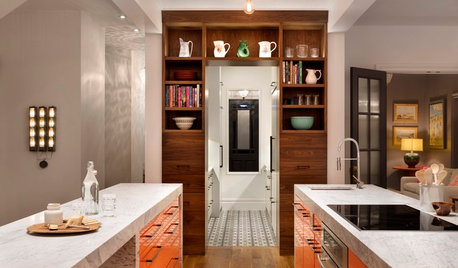How hard is it to move a doorway?
aprilmack
12 years ago
Featured Answer
Sort by:Oldest
Comments (14)
palimpsest
12 years agoRelated Professionals
Bethpage Kitchen & Bathroom Designers · Northbrook Kitchen & Bathroom Designers · Riviera Beach Kitchen & Bathroom Designers · Vineyard Kitchen & Bathroom Designers · Albuquerque Kitchen & Bathroom Remodelers · Hoffman Estates Kitchen & Bathroom Remodelers · Mooresville Kitchen & Bathroom Remodelers · North Arlington Kitchen & Bathroom Remodelers · Payson Kitchen & Bathroom Remodelers · Forest Hills Kitchen & Bathroom Remodelers · Avocado Heights Cabinets & Cabinetry · Drexel Hill Cabinets & Cabinetry · Forest Hills Cabinets & Cabinetry · Tinton Falls Cabinets & Cabinetry · West Freehold Cabinets & CabinetryDando
12 years agojoaniepoanie
12 years agoweedmeister
12 years agochrisk327
12 years agoCEFreeman
12 years agokaismom
12 years agoMaine_Mare
12 years agoaprilmack
12 years agoRedhead47
12 years agoformerlyflorantha
12 years agomacybaby
12 years agokaismom
12 years ago
Related Stories

TRANSITIONAL HOMESHouzz Tour: Would-Be House Flipper Falls Hard for a Florida Bungalow
An investment project winds up becoming home for a St. Petersburg, Florida, design enthusiast
Full Story
LIFEThe Moving-Day Survival Kit: Lifesaving Items and Niceties
Gather these must-haves in advance for a smooth move and more comfortable first days in your new home
Full Story
REMODELING GUIDESShould You Remodel or Just Move?
If you're waffling whether 'tis better to work with what you've got or start fresh somewhere else, this architect's insight can help
Full Story
GREAT HOME PROJECTSHow to Create a Secret Doorway Behind a Bookcase
Hide your valuables (or unsightly necessities) in a room or nook that no one will guess is there
Full Story
HOUZZ TOURSMy Houzz: Creative Moves Turn a Toronto Basement Into a Stylish Rental
See how two Canadian designers renovated their townhouse's lower level into a bright and modern one-bedroom apartment
Full Story
LIFEHard Winter? 9 Ways to Battle Cabin Fever
We know a lot of you are trapped where it just won’t stop snowing. Here are some ways to survive
Full Story
HOUSEKEEPINGOutdoor Home Prep to Do Before Hard Winter Hits
Avoid cracking, rusting and rotting during freezes by taking care of these tasks now
Full Story
KITCHEN DESIGNChef's Kitchen Works Hard Yet Stays Pretty
A butler's pantry complete with refrigerator and dishwasher helps a restaurateur contain the mess when cooking and entertaining at home
Full Story
HOUZZ TOURSMy Houzz: Hard Work Pays Off in a DIY Cottage Renovation
First-time homeowners roll up their sleeves and give their midcentury Montreal home an infusion of style and personality
Full Story










bethcw